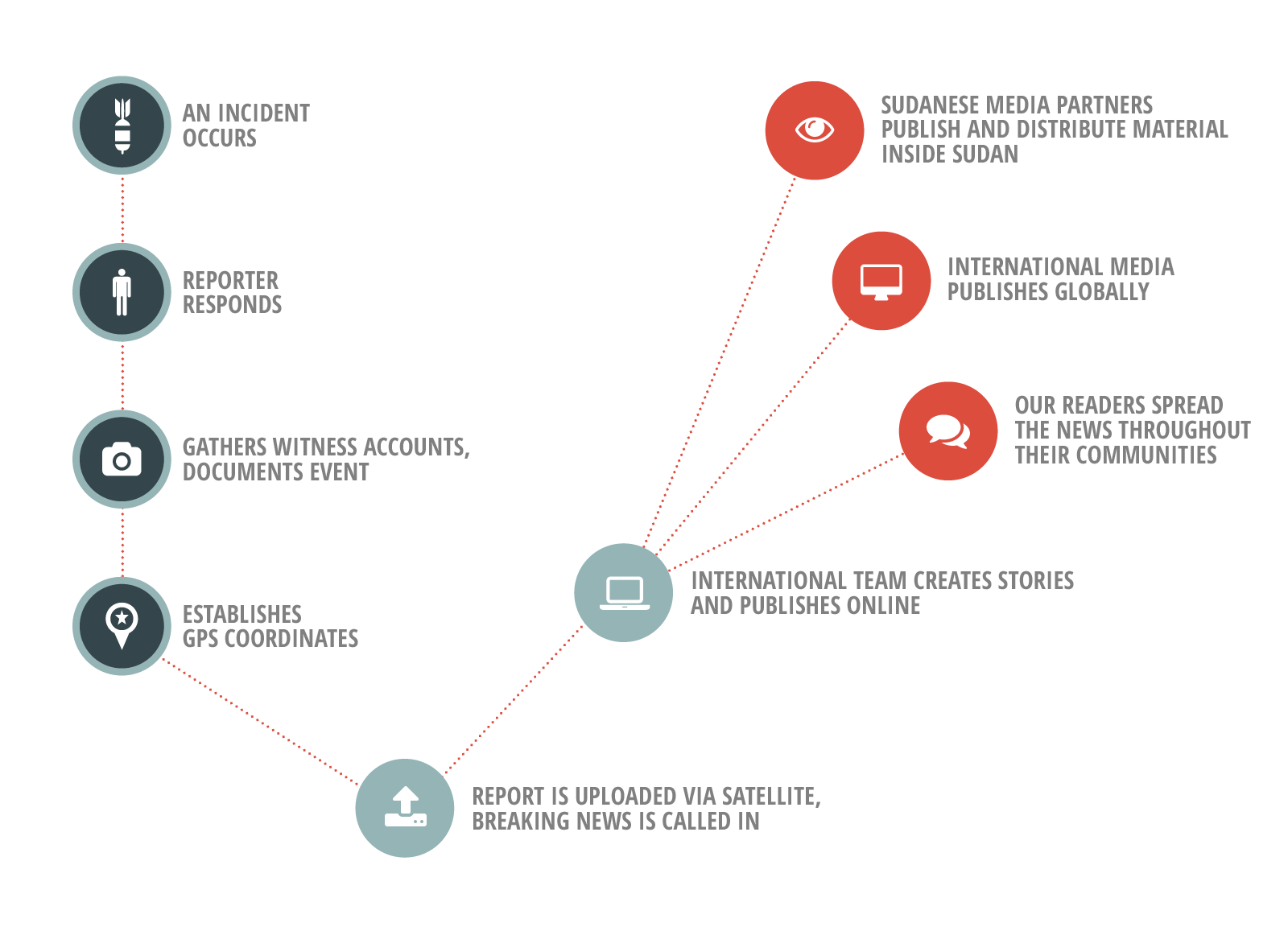About Us
We provide credible coverage of the ongoing conflict in the Nuba mountains and across Sudan. Read more below.
Sudan’s decades-long civil war has claimed two million lives and left two million more homeless. InThe 2011 Sudanese General elections saw Ahmed Haroun, an indicted war criminal, elected governor of South Kordofan. Local leaders claimed the vote was marred by fraud and vote rigging. Shortly after, fighting erupted in the Nuba Mountains.
Only days after the Haroun’s election, Sudanese president Omar Hassan al-Bashir – also wanted by the International Criminal Court for crimes against humanity – ordered the Sudan People’s Liberation Movement-North (SPLM-N), which consists primarily of people of Nuban ethnicity, to either disarm or leave their homeland. The order ran contrary to the peace agreement, which called on Sudan to integrate the rebel army with government forces over a period of several months. The SPLM-N refused to disarm and its volunteer army – composed of traders, shopkeepers and farmers – began fighting for political reform.
Sudan’s army conducted a campaign of door-to-door killing, looting, and destruction of property, targeting Nuban and pro-SPLM-N supporters throughout South Kordofan. Civilians fled to caves in the Nuba Mountains to avoid aerial bombs. Humanitarian aid organizations evacuated their workers and the government of Sudan banned journalists from entering the region. Photographs from that period show women and children mangled and mutilated by the government bombings. In a video later found by rebels at a military base, Haroun wears civilian clothes as he orders the extermination of his people: “Don’t bring them back alive. We have no space for them.”
The reporting team and the Nuba Reports website were created to draw international attention to the increasingly urgent and underreported humanitarian situation, human rights violations and violence in the remote region closed off by the Sudanese government. It is still illegal for both national and international journalists to report on the rebellion in the Nuba Mountains.
Nuba Reports has become a crucial source of information for NGOs and advocacy groups as well as international news outlets that seek to tell the story. The team has directly and indirectly helped create content published in outlets such as CNN, BBC, France 24, Al Jazeera The New York Times, Reuters, the Associated Press, Time, and many others.
The Nuba Reports website represents the vitally important perspectives of the Nuba people themselves by allowing local reporters to tell their stories. Although our current focus has been communicating these stories to an international audience, we think it is critical to reach the people in Sudan as well. The Khartoum government has successfully censored news of the war in Khartoum. We believe it is critical for people in Sudan to see what is happening in their own country.
This project also serves as an historical archive for the Nuban people. Not only does it give voice to the citizens of South Kordofan and raise awareness of the conflict, it provides a record of these events so that they are never forgotten. 2005, the Sudan People’s Liberation Movement and the ruling National Congress Party signed a peace agreement. Among other demands, it called for national elections, a census, popular consultations (which would allow the people to renegotiate political policies) and a commission to investigate human rights abuses by the government. The peace agreement saw South Sudan form an independent nation in 2011. But in South Kordofan, hardly any of the agreement’s provisions were honored. In South Kordofan elections were delayed and popular consultations suspended. A census that dramatically underrepresented the region’s population was entered into the public record and there have been no investigations into the human rights abuses of the past.
How we work

